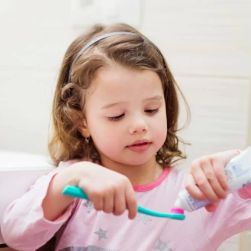As age progresses, maintaining oral health becomes increasingly important, yet challenging for older adults. The threat of gum disease and tooth decay intensifies, potentially affecting overall health and quality of life. In this article, we explore practical strategies for seniors to prevent these common dental problems. Understanding how aging impacts oral health and adopting appropriate preventive measures can help protect your teeth and gums for years to come.
The Impact of Aging on Oral Health
Aging naturally brings about physical changes that can affect oral health, making the prevention of gum disease and tooth decay crucial for seniors. The body's ability to repair and maintain itself declines over time, leading to decreased saliva production, receding gums, and more brittle teeth. These changes create an environment where dental issues can easily take root. According to the Centers for Disease Control and Prevention (CDC), nearly 68% of adults aged 65 and older have gum disease. Understanding these changes can help seniors better adapt their oral hygiene routines to combat common problems.
Developing a Comprehensive Oral Hygiene Routine
An effective oral hygiene routine is the foundation of preventing gum disease and tooth decay. Seniors should brush their teeth at least twice a day using fluoride toothpaste and a soft-bristle brush to gently remove plaque without damaging delicate gum tissue. Flossing is equally important; it helps remove food particles and plaque between teeth that brushing alone cannot reach. For those with dexterity issues, interdental brushes or water flossers can be excellent alternatives. Regular use of antimicrobial mouthwash can help reduce bacteria and freshen breath.
The Importance of Regular Dental Visits
Regular dental check-ups are vital for early detection and treatment of dental issues among seniors. Dentists can provide professional cleanings, evaluate oral health status, and offer personalized advice on maintaining oral hygiene. Many professionals recommend that older adults visit their dentist at least twice a year. For those with dentures, visiting a dentist is crucial to ensure proper fit and function, which can help prevent sores and infections. Furthermore, dental visits offer the opportunity to discuss topics like dry mouth and its effects on oral health.
The Role of Nutrition in Oral Health
Nutrition plays a significant role in maintaining healthy teeth and gums. Seniors should focus on a balanced diet rich in vitamins and minerals, such as calcium and Vitamin D, which support bone and dental health. Limiting sugar intake can significantly reduce the risk of tooth decay. It’s beneficial to incorporate crunchy fruits and vegetables, like apples and carrots, which naturally clean teeth and stimulate saliva flow. Staying hydrated is equally important, as it helps produce saliva which naturally protects against cavities.
Addressing Common Dental Issues in Seniors
Common dental issues, such as dry mouth, gum recession, and tooth sensitivity, require specific care strategies. Dry mouth, often caused by medications, can be alleviated by drinking more water and using saliva substitutes. Gum recession might necessitate using a softer toothbrush or desensitizing toothpaste. Regular use of fluoride treatments, either through toothpaste or mouth rinse, can also help strengthen enamel and combat sensitivity. Education and tailored strategies are key to managing and mitigating these issues effectively.
In conclusion, preventing gum disease and tooth decay among the elderly involves understanding the unique challenges posed by aging, adopting a comprehensive oral hygiene routine, maintaining regular dental visits, ensuring appropriate nutrition, and addressing specific dental issues effectively. By following these strategies, seniors can significantly enhance their oral health and maintain their quality of life. At Dentistry Toothtruth, we are committed to providing insights and resources to assist in this endeavor. Taking these proactive steps will help ensure a healthier, brighter smile for years to come.



